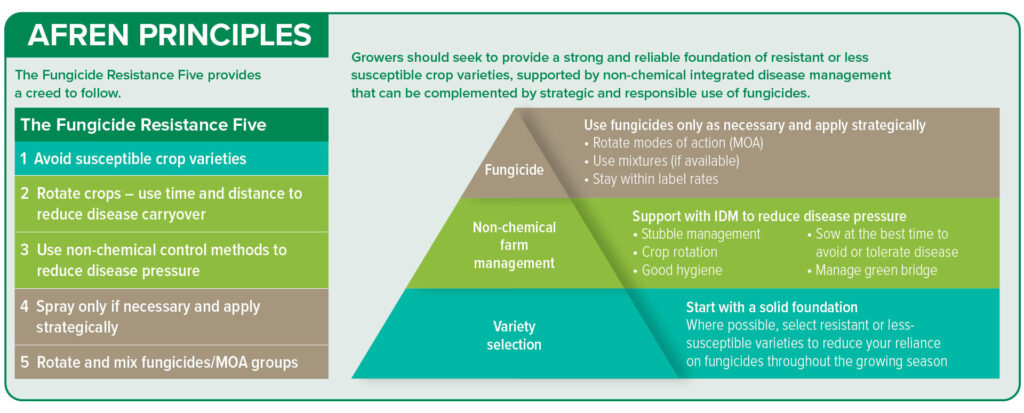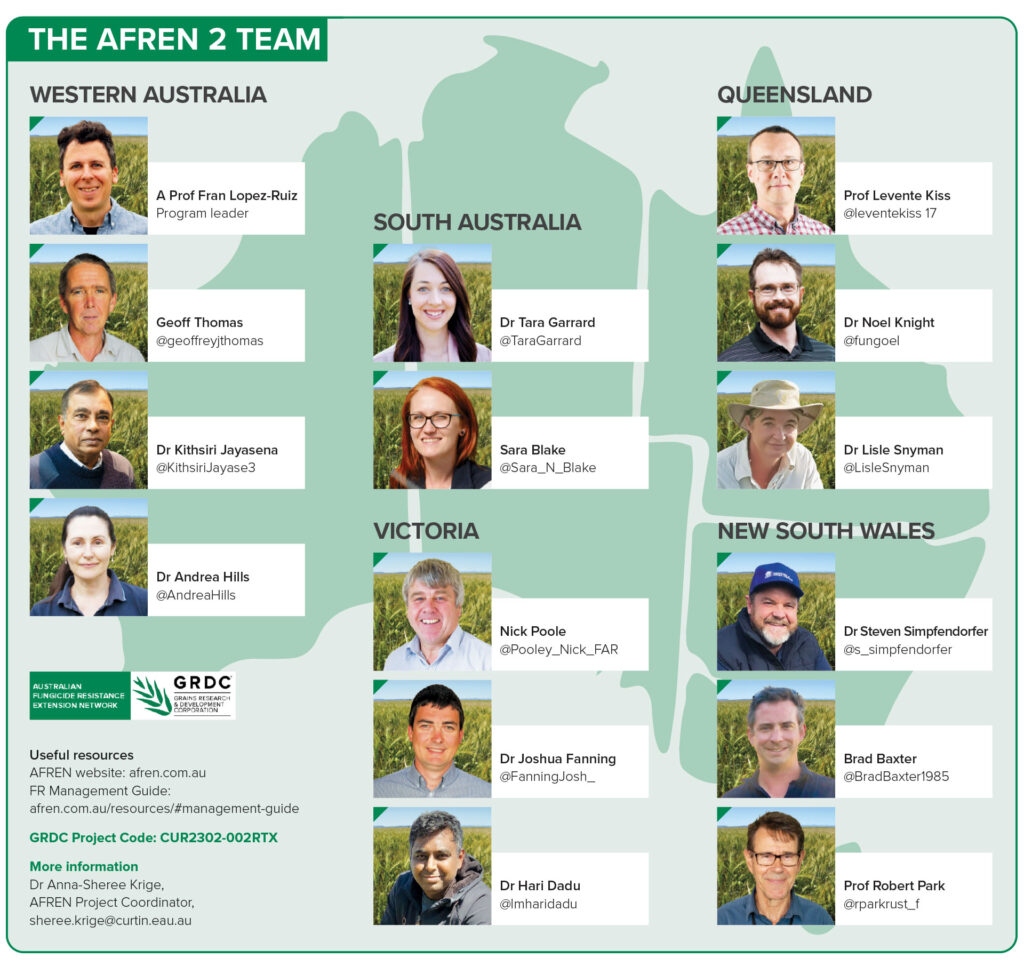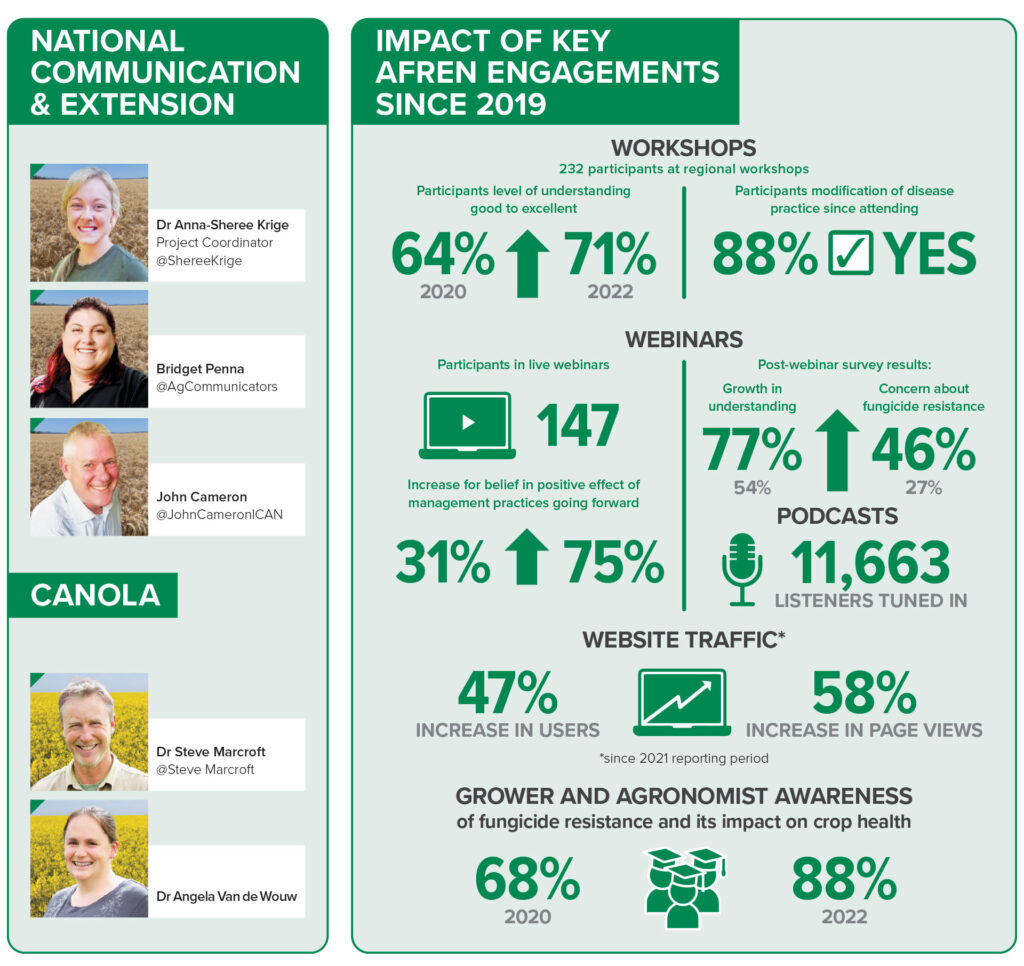Courtesy: GRDC Ground Cover, original article published online: Knowledgeable growers – the frontline defence | Groundcover (grdc.com.au)
AFREN’s mandate is to help growers and advisers stay informed about the prevalence and management of fungicide resistance in their region.
In the absence of new fungicide modes of action or host plant resistance, the first line of defence is knowledge – effective agronomic practices and an informed fungicide strategy that mitigates the risk of fungicide resistance developing.
The team tasked with ensuring Australian grain growers and advisers know how to reduce the emergence and impacts of fungicide resistance is the Australian Fungicide Resistance Extension Network (AFREN).

This national network of plant pathologists, fungicide resistance experts and communication and extension specialists was established with GRDC investment in 2019.
Led by Associate Professor Fran Lopez-Ruiz, initially supported by project coordinator Dr Kylie Ireland and headquartered at the Centre for Crop and Disease Management at Curtin University, AFREN delivered key extension messaging through 2019 and 2022, leading now to a new GRDC-supported project, AFREN 2.

Project partners include Agriculture Victoria, the Centre for Crop Health at the University of Southern Queensland, the Queensland Department of Agriculture and Fisheries, the Western Australian Department of Primary Industries and Regional Development, Field Applied Research Australia, Independent Consultants Australia Network, Marcroft Grains Pathology, the South Australian Research and Development Institute, the University of Sydney, the University of Melbourne and AgCommunicators.
AFREN 2 project coordinator Dr Anna-Sheree Krige says the suite of extension resources and training activities developed through AFREN are increasing growers’ and advisers’ knowledge of disease and fungicide resistance management.

“A significant achievement has been the delivery of an independent management guide for fungicide resistance to industry in 2021,” she says.
“This guide walks users through the dynamics of fungicide resistance and then provides management guidelines for major crops.
Surveys of participants at AFREN workshops in 2020 and 2022 revealed an increased level of understanding of fungicide resistance from good (64 per cent) to excellent (71 per cent).
AFREN’s objectives
In its first iteration, AFREN engaged experts to develop messaging and management strategies for combating fungicide resistance development in grain crops.
A suite of resources was produced and information was delivered directly to growers and advisers through workshops across Australia. Collectively, these have improved the baseline knowledge and understanding of fungicide resistance development and subsequent management strategies.
AFREN 2’s national network will look to build upon the achievements of the initial project by delivering annual fungicide resistance training workshops and ensuring ongoing resources are developed to address management strategies which are crop, disease and region-specific.
“Our partners bring a great diversity in experience and industry knowledge. The new investment ensures this network is maintained, which allows us to continue extending existing and new research information to the industry,” Dr Krige says.
“Management practices that reduce disease pressure and the number of fungicide treatments required can reduce the risk of resistance developing. So, by arming growers and advisers with up-to-date management knowledge, we have the potential to reduce the risk of fungicide resistance.”
More information: Dr Anna-Sheree Krige, sheree.krige@curtin.edu.au

